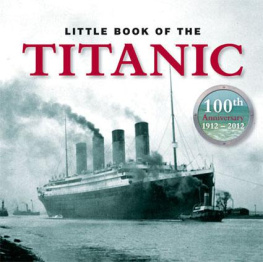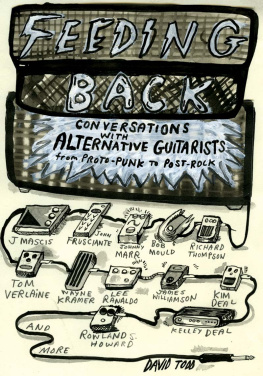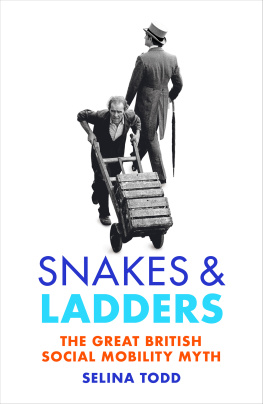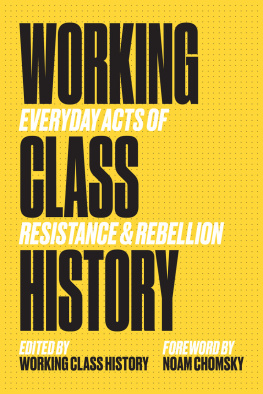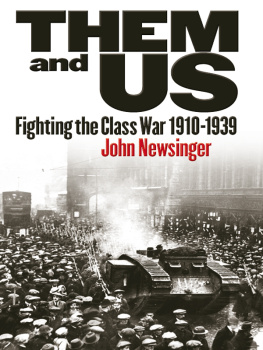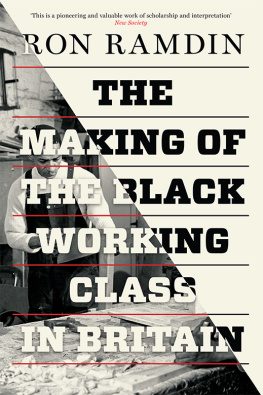Todd - The people : the rise and fall of the working class, 1910-2010
Here you can read online Todd - The people : the rise and fall of the working class, 1910-2010 full text of the book (entire story) in english for free. Download pdf and epub, get meaning, cover and reviews about this ebook. City: Gran Bretanya, year: 2014, publisher: Hodder and Stoughton;John Murray Publishers Ltd, genre: Politics. Description of the work, (preface) as well as reviews are available. Best literature library LitArk.com created for fans of good reading and offers a wide selection of genres:
Romance novel
Science fiction
Adventure
Detective
Science
History
Home and family
Prose
Art
Politics
Computer
Non-fiction
Religion
Business
Children
Humor
Choose a favorite category and find really read worthwhile books. Enjoy immersion in the world of imagination, feel the emotions of the characters or learn something new for yourself, make an fascinating discovery.
The people : the rise and fall of the working class, 1910-2010: summary, description and annotation
We offer to read an annotation, description, summary or preface (depends on what the author of the book "The people : the rise and fall of the working class, 1910-2010" wrote himself). If you haven't found the necessary information about the book — write in the comments, we will try to find it.
The people : the rise and fall of the working class, 1910-2010 — read online for free the complete book (whole text) full work
Below is the text of the book, divided by pages. System saving the place of the last page read, allows you to conveniently read the book "The people : the rise and fall of the working class, 1910-2010" online for free, without having to search again every time where you left off. Put a bookmark, and you can go to the page where you finished reading at any time.
Font size:
Interval:
Bookmark:
Young Women, Work, and Family in England, 19181950

www.johnmurray.co.uk
First published in Great Britain in 2014 by John Murray (Publishers)
An Hachette UK company
Copyright Selina Todd 2014
The right of Selina Todd to be identified as the Author of the Work has been asserted by her in accordance with the Copyright, Designs and Patents Act 1988.
All rights reserved.
No part of this publication may be reproduced, stored in a retrieval system, or transmitted, in any form or by any means without the prior written permission of the publisher.
A CIP catalogue record for this title is available from the British Library
ISBN 978-1-84854-883-1
John Murray (Publishers)
338 Euston Road
London NW1 3BH
www.johnmurray.co.uk
Dedicated to Andrew Davies
And in memory of Jack Hirst, 19362012
Contents
C LASS HAS UNITED and divided Britain since the Industrial Revolution. United, because class is widely accepted as a quintessentially British fact of life, a heritage and language that we can all share. Divided, because class is no romantic tradition or amusing idiosyncracy, but is produced by exploitation in a country where a tiny elite has possessed the majority of the wealth. The so-called traditional working class everyone who worked with their hands constituted the vast majority of Britons in 1910, when this book begins, and although that was no longer the case a century later, most people still claimed to belong to the working class in 2010. Here, I tell their story.
The years between 1910 and 2010 were the working-class century. During the Industrial Revolution specifically during and after the Second World War that the working class became the people, whose interests were synonymous with those of Britain itself.
This working class was composed largely of manual workers and their families miners, dockers and steelworkers, and also domestic servants and lower grade clerical workers like typists, secretaries, office boys and messengers. They constituted adapted to, resisted and modified the circumstances in which they found themselves.
The People uncovers a huge, hidden swathe of Britains past, but it is also an intimate history. It began as my attempt to find out about the history of one family my own. My mother, Ruth, was one of six children born in Leeds in the 1940s. Her father, Fred Hirst, was a welder and her mother, Jean, had left the dole queues of inter-war Scotland with her best friend Nancy for the high life of shop work in Woolworths in Leeds. The Hirsts lived in Hunslet, the same industrial district from which Richard Hoggart, author of The Uses of Literacy, hailed. But their experience didnt reflect the romantic idyll of respectability described by Hoggart, nor the stable society of Downton Abbey. The story I heard was one about the increasing economic and political clout of the working class especially during and after the Second World War, when factory workers and soldiers became the people, and increasingly central to political debate and British culture. But it was also a story about fighting for everything you got, whether by escaping from domestic service in the 1920s; making sure you were in a reserved occupation so you didnt have to fight their war in the 1940s; or throwing orange peel and jeering at Winston Churchill when he appeared on cinema screens in the early 1950s, because it was Labour who had ensured that the peoples war brought about a peoples peace of welfare and full employment. Despite the post-war reforms, theirs was also a story of anger, that made clear that class inequality and the indignities it caused was never eradicated, and came back with a vengeance after 1979.
My father, Nigel, has a different story, but one that has also been missed from the history books. He grew up in Kent as an only child. Following the early death of his mother, when Nigel was eight, his father suffered a mental breakdown and was institutionalized for the rest of his life. Nigel was taken into care. The post-war welfare state meant that a professional social worker was assigned to his case. But the welfare reforms brought about by the 1945 Labour government were still in their earliest years, and most children in Nigels position relied on relatives to take them in or were consigned to the childrens homes run by voluntary organizations like Barnados. Nigel was fortunate that his social worker was determined that he would escape that fate. She made arrangements for him to stay at a local cottage hospital, just a few years after health care had been made freely available to all in 1948, thanks to Labours National Health Service Act. Nigel eventually found a home with his grandparents, and later an aunt and uncle. Their shared love of financial speculation, whether gambling (his granddad died with a bookies slip in his back pocket) or get-rich-quick business schemes, spoke of fantasies of a different, better kind of life that no political party ever delivered.
Like most children in the so-called post-war golden age of social mobility, Nigel failed his eleven-plus examination and attended a secondary modern school until the age of fifteen. He and my mother owed their education to routes other than those provided by the state. In my fathers case, this was the labour movement: in his late teens he became a clerk for the Workers Educational Association, an adult education organization founded by trade unionists and socialists in 1903. The WEA sent him to Ruskin College, a trade-union-funded adult education college in Oxford, where he met my mother. After leaving school at sixteen, disillusioned with what her grammar school had to offer, Ruth had become a clerk at Leeds Family Service Unit (FSU) a social work organization that aimed to improve the lives of those in need, rather than blame them for their plight. Her work there, and her involvement in the local Labour Party in the early 1960s, also led her to Ruskin. Neither of my parents aspired to climb the social ladder into the middle class: they wanted everyones opportunities to be improved, and hoped to see Britain become a more equal society, in which working-class culture and life would not automatically be considered inferior. But they never idealized working-class life, for both did want to escape the poverty and uncertainty of their childhood.
I looked in and came to Britain in 1945; proud of her new council house in the 1950s, she saw her estate become a centre of deprivation by the 1970s, and at the millennium she remained a tireless campaigner for its residents.
Those who came of age after the war had more pleasure and independence when they were young, but found their freedom curtailed by rising unemployment and insecurity in the late 1960s. Teddy Boy Terry Rimmer, born in 1937, had exchanged rock and roll for rebellion on the picket lines of the Ford Motor Company by 1968. Jiving Judy Walker escaped Coventry for adventure in South Africa in the swinging sixties, only to return to a council flat in the 1970s and life as a community campaigner.
Other voices remind us that there was never a golden age of social mobility, and that fighting ones way up the social ladder was never easy or even pleasant. They include Bill Rainford, who thought he had a job for life in 1969, only to find himself made redundant thirty years later, and Paul Baker, the milkmans son who became a financial manager but sometimes wondered if his success was worth the sacrifices it took to leave his working-class background. We hear from all these people and hundreds more about how they made a life for themselves, often struggling in circumstances that, given the chance, they would never have chosen.
Font size:
Interval:
Bookmark:
Similar books «The people : the rise and fall of the working class, 1910-2010»
Look at similar books to The people : the rise and fall of the working class, 1910-2010. We have selected literature similar in name and meaning in the hope of providing readers with more options to find new, interesting, not yet read works.
Discussion, reviews of the book The people : the rise and fall of the working class, 1910-2010 and just readers' own opinions. Leave your comments, write what you think about the work, its meaning or the main characters. Specify what exactly you liked and what you didn't like, and why you think so.



